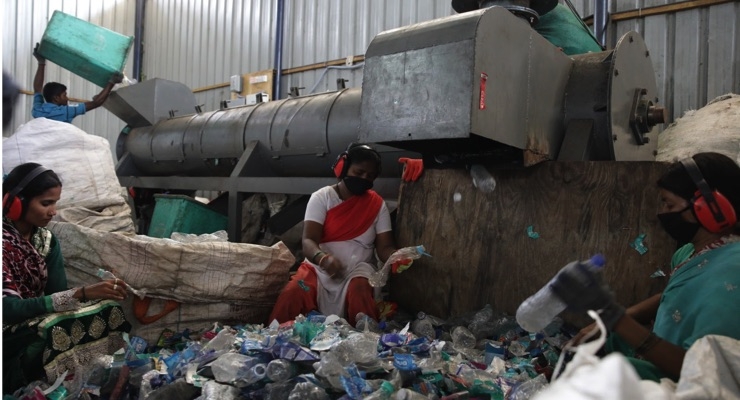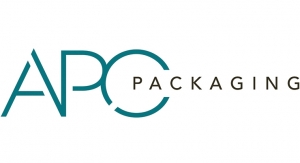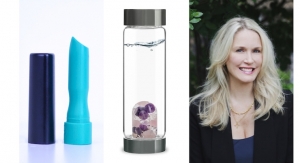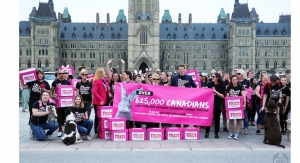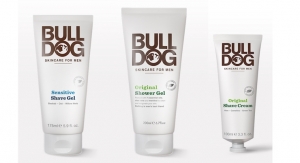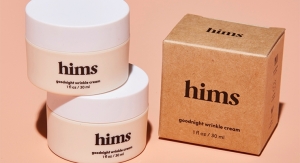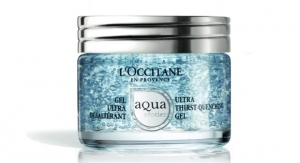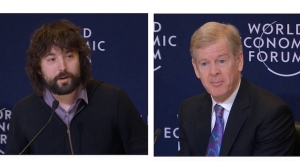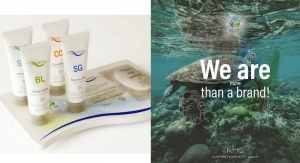05.09.19
In sync with World Fair Trade Day (May 11), Plastics For Change and The Body Shop have announced a global partnership to launch what they call ‘the first fairly traded recycled plastic.’ Plastics For Change and The Body Shop are both certified under the World Fair Trade Organization. To mark the launch, The Body Shop and Plastics For Change unveiled a giant artwork of a female Indian waste picker in London’s Borough Market. The plastic was collected by waste-pickers in the Plastics For Change supply chain.
According to the alliance, the partnership is meant to show that it’s possible for the industry to build responsible supply chains in impoverished communities, while simultaneously reducing pollution and poverty.
Plastics For Change has developed a marketplace platform that connects waste-pickers to global markets and ensures a consistent supply of high-quality recycled plastic for brands. This initiative is about bettering the lives of the urban poor while transitioning the industry towards a circular economy.
The Body Shop and Plastics For Change say they “take the human approach to tackle this problem. Over three billion people live without formal waste management – that’s almost half the planet’s population. This has given rise to an informal waste-picking economy. These waste-pickers are often outcast in society, lied to and cheated. However, they are critical workers in helping collect plastic before it enters the world’s oceans.”
Working conditions and livelihood opportunities provided by Plastics For Change, follow all 10 fair trade principles outlined by WFTO. Both companies understand that plastic can be used to transform lives and help marginalized communities.
Fairly Traded Recycled Plastic from Bengaluru, India
Plastic consumption in emerging economies like India has grown drastically and infrastructure development has not kept pace. The result is a dramatic increase in plastic waste.
India has 1.5 million waste pickers who collect and sort over 6,000 tons of plastic every day that could otherwise pollute our rivers and oceans, according to Plastics For Change. The majority of India’s waste pickers are Dalits, previously known as “untouchables.” This means that they have virtually no visibility in society and have limited rights. They are vulnerable to discrimination, poor living and working conditions and an unpredictable payment system for the plastic they collect.
According to the organization, with over three years of refining the platform, Plastics For Change has met the quality requirement needed for food and cosmetics packaging. This was achieved through a rigorous quality assurance process and uploading all data onto the mobile platform. Now, The Body Shop has begun using this Fairly Traded recycled plastic in its 250ml haircare bottles, including its bestselling Ginger Shampoo with one bottle sold every four seconds. The bottles will contain 100% recycled plastic (excluding the bottle caps). Of that, 15% will be Fairly Traded recycled plastic, the remainder will be recycled plastic from European sources. The Body Shop and Plastics For Change will increase the amount of Fairly Traded Recycled plastic over time. Working with a start-up company and small waste picker communities means starting small and scaling up in a responsible and sustainable manner.
In its first year, The Body Shop will purchase 250 tons of Fair Trade recycled plastic to use in nearly three million 250ml haircare bottles by the end of 2019. This marks the start of a wider ambition, which is to introduce Community Trade Recycled plastic across all PET plastic used by The Body Shop within three years. Over the course of three years, the program will scale up to purchasing over 900 tons of Community Trade Recycled Plastic and help empower up to 2,500 waste pickers in Bengaluru.
They will receive a fair price for their work, a predictable income and better working conditions. They will also get help in accessing services such as education, financial loans and healthcare services, and the respect and recognition they deserve. The Body Shop and Plastics for Change will work alongside local partners such as Hasiru Dala, a non-governmental organization that fights for waste picker rights, and Hasiru Dala Innovations, a social enterprise dedicated to creating essential employment opportunities for waste pickers.
“As a company, we’ve always had the conviction to stand up for our principles when it comes to helping empower people, especially women, while protecting our planet. Our new partnership with Plastics For Change and our other partners will not only support waste pickers but also champion plastic as a valuable renewable resource when used responsibly,” says Lee Mann, Global Community Trade Manager for The Body Shop.
“Plastic recycling is a major source of income for the one percent of the world’s most marginalized urban population and we are incredibly excited to partner with The Body Shop and other partners to help these groups get the financial and social benefits they deserve. This is the world’s first ever program of verified Fair Trade plastic collection for use in recycling,” says Andrew Almack, CEO of Plastics for Change.
An MIT Solver Team
PHOTO: Under this program, plastic waste pickers in India will receive a fair price and better conditions for their endeavors.
According to the alliance, the partnership is meant to show that it’s possible for the industry to build responsible supply chains in impoverished communities, while simultaneously reducing pollution and poverty.
Plastics For Change has developed a marketplace platform that connects waste-pickers to global markets and ensures a consistent supply of high-quality recycled plastic for brands. This initiative is about bettering the lives of the urban poor while transitioning the industry towards a circular economy.
The Body Shop and Plastics For Change say they “take the human approach to tackle this problem. Over three billion people live without formal waste management – that’s almost half the planet’s population. This has given rise to an informal waste-picking economy. These waste-pickers are often outcast in society, lied to and cheated. However, they are critical workers in helping collect plastic before it enters the world’s oceans.”
Working conditions and livelihood opportunities provided by Plastics For Change, follow all 10 fair trade principles outlined by WFTO. Both companies understand that plastic can be used to transform lives and help marginalized communities.
Fairly Traded Recycled Plastic from Bengaluru, India
Plastic consumption in emerging economies like India has grown drastically and infrastructure development has not kept pace. The result is a dramatic increase in plastic waste.
India has 1.5 million waste pickers who collect and sort over 6,000 tons of plastic every day that could otherwise pollute our rivers and oceans, according to Plastics For Change. The majority of India’s waste pickers are Dalits, previously known as “untouchables.” This means that they have virtually no visibility in society and have limited rights. They are vulnerable to discrimination, poor living and working conditions and an unpredictable payment system for the plastic they collect.
According to the organization, with over three years of refining the platform, Plastics For Change has met the quality requirement needed for food and cosmetics packaging. This was achieved through a rigorous quality assurance process and uploading all data onto the mobile platform. Now, The Body Shop has begun using this Fairly Traded recycled plastic in its 250ml haircare bottles, including its bestselling Ginger Shampoo with one bottle sold every four seconds. The bottles will contain 100% recycled plastic (excluding the bottle caps). Of that, 15% will be Fairly Traded recycled plastic, the remainder will be recycled plastic from European sources. The Body Shop and Plastics For Change will increase the amount of Fairly Traded Recycled plastic over time. Working with a start-up company and small waste picker communities means starting small and scaling up in a responsible and sustainable manner.
In its first year, The Body Shop will purchase 250 tons of Fair Trade recycled plastic to use in nearly three million 250ml haircare bottles by the end of 2019. This marks the start of a wider ambition, which is to introduce Community Trade Recycled plastic across all PET plastic used by The Body Shop within three years. Over the course of three years, the program will scale up to purchasing over 900 tons of Community Trade Recycled Plastic and help empower up to 2,500 waste pickers in Bengaluru.
They will receive a fair price for their work, a predictable income and better working conditions. They will also get help in accessing services such as education, financial loans and healthcare services, and the respect and recognition they deserve. The Body Shop and Plastics for Change will work alongside local partners such as Hasiru Dala, a non-governmental organization that fights for waste picker rights, and Hasiru Dala Innovations, a social enterprise dedicated to creating essential employment opportunities for waste pickers.
“As a company, we’ve always had the conviction to stand up for our principles when it comes to helping empower people, especially women, while protecting our planet. Our new partnership with Plastics For Change and our other partners will not only support waste pickers but also champion plastic as a valuable renewable resource when used responsibly,” says Lee Mann, Global Community Trade Manager for The Body Shop.
“Plastic recycling is a major source of income for the one percent of the world’s most marginalized urban population and we are incredibly excited to partner with The Body Shop and other partners to help these groups get the financial and social benefits they deserve. This is the world’s first ever program of verified Fair Trade plastic collection for use in recycling,” says Andrew Almack, CEO of Plastics for Change.
An MIT Solver Team
Plastics for Change is an MIT Solver team. MIT elevates the profile of the startups, provides funding, secures funding and networking opportunities and currently at Solve at MIT this week, the Solvers are receiving guidance from investors, CEOs, philanthropies and others to help workshop their businesses to make sure they are developed for long term sustainable impact.
“We are proud to support Plastics For Change, a Work of the Future Solver team working to ensure fair wages and safer working conditions for the 1.5 million waste pickers in India,” said Alex Amouyel, Executive Director with MIT Solve. “As a mobile platform bolstering transparency and accountability across the recycled plastics supply chain, its partnership with The Body Shop has the potential to truly tackle the pollution and poverty crisis in India—and set a global standard on impactful cross-sector sustainability partnerships.”
PHOTO: Under this program, plastic waste pickers in India will receive a fair price and better conditions for their endeavors.

